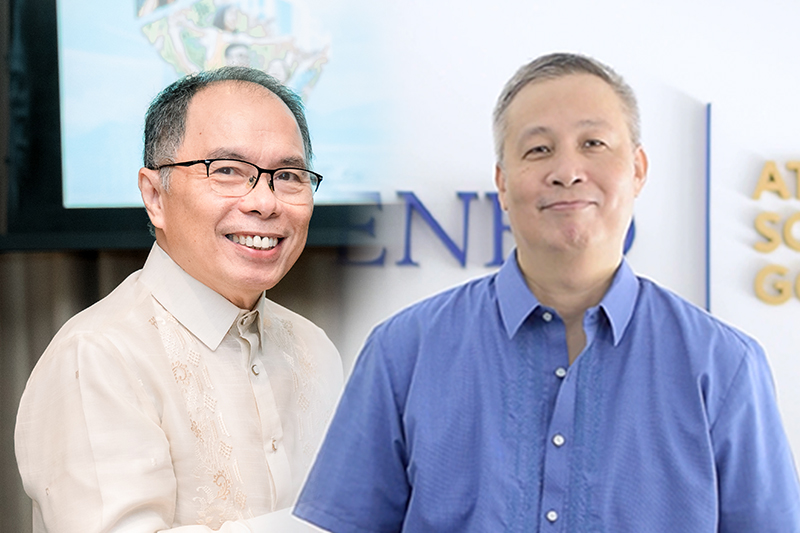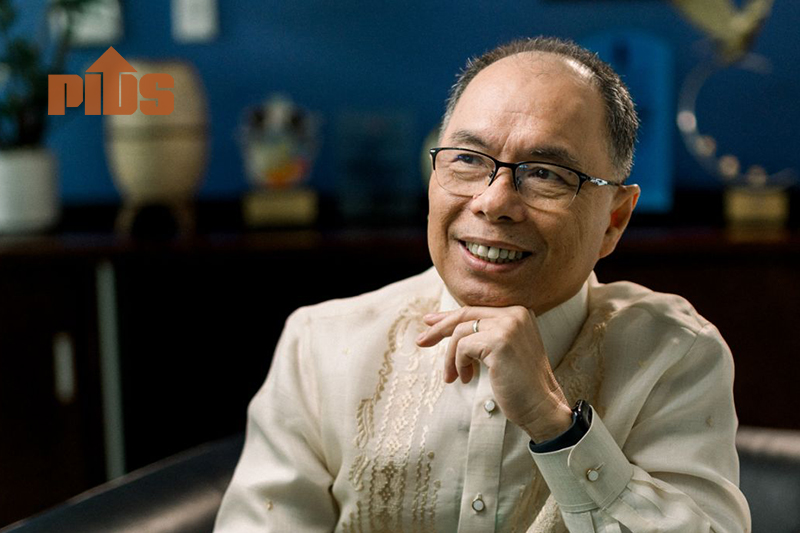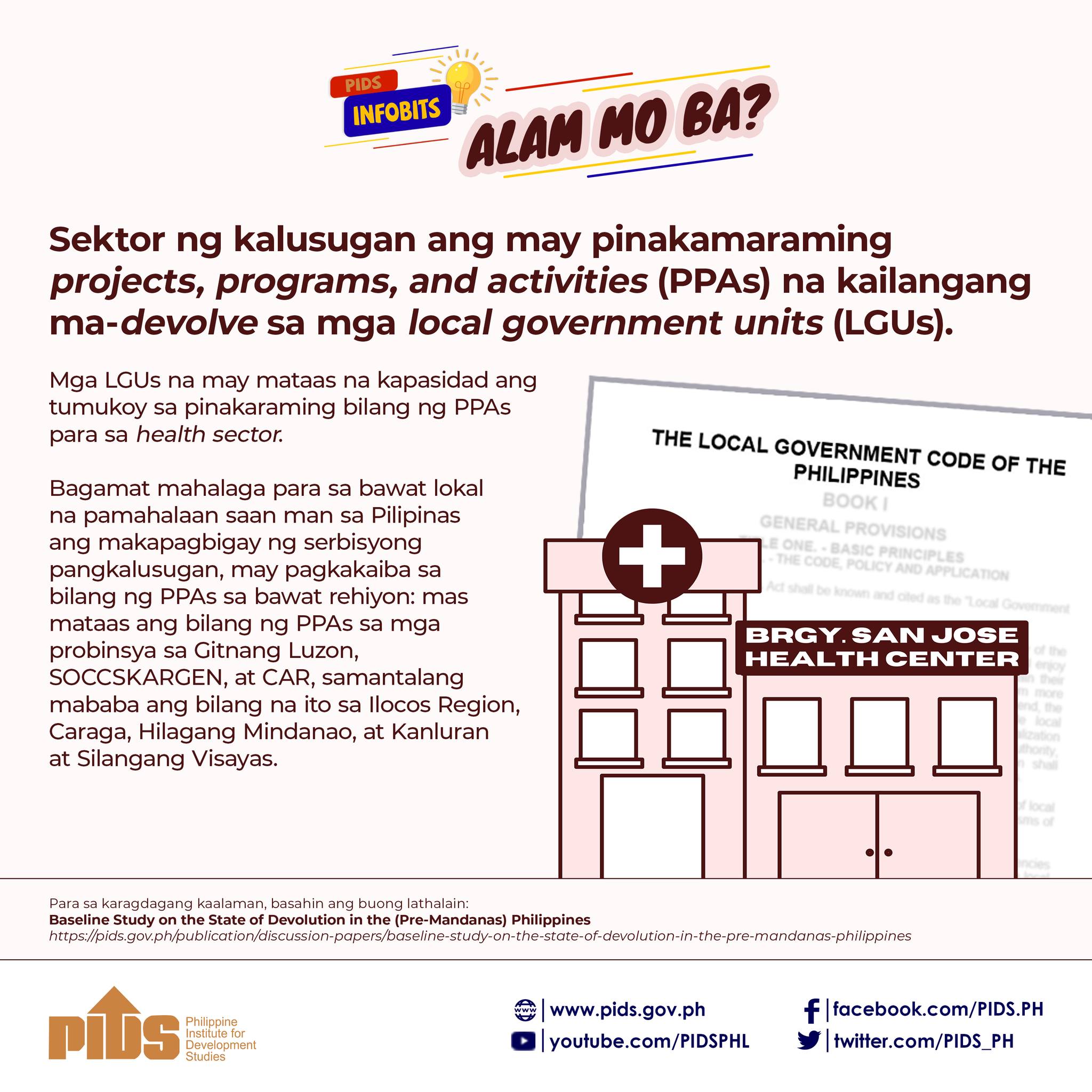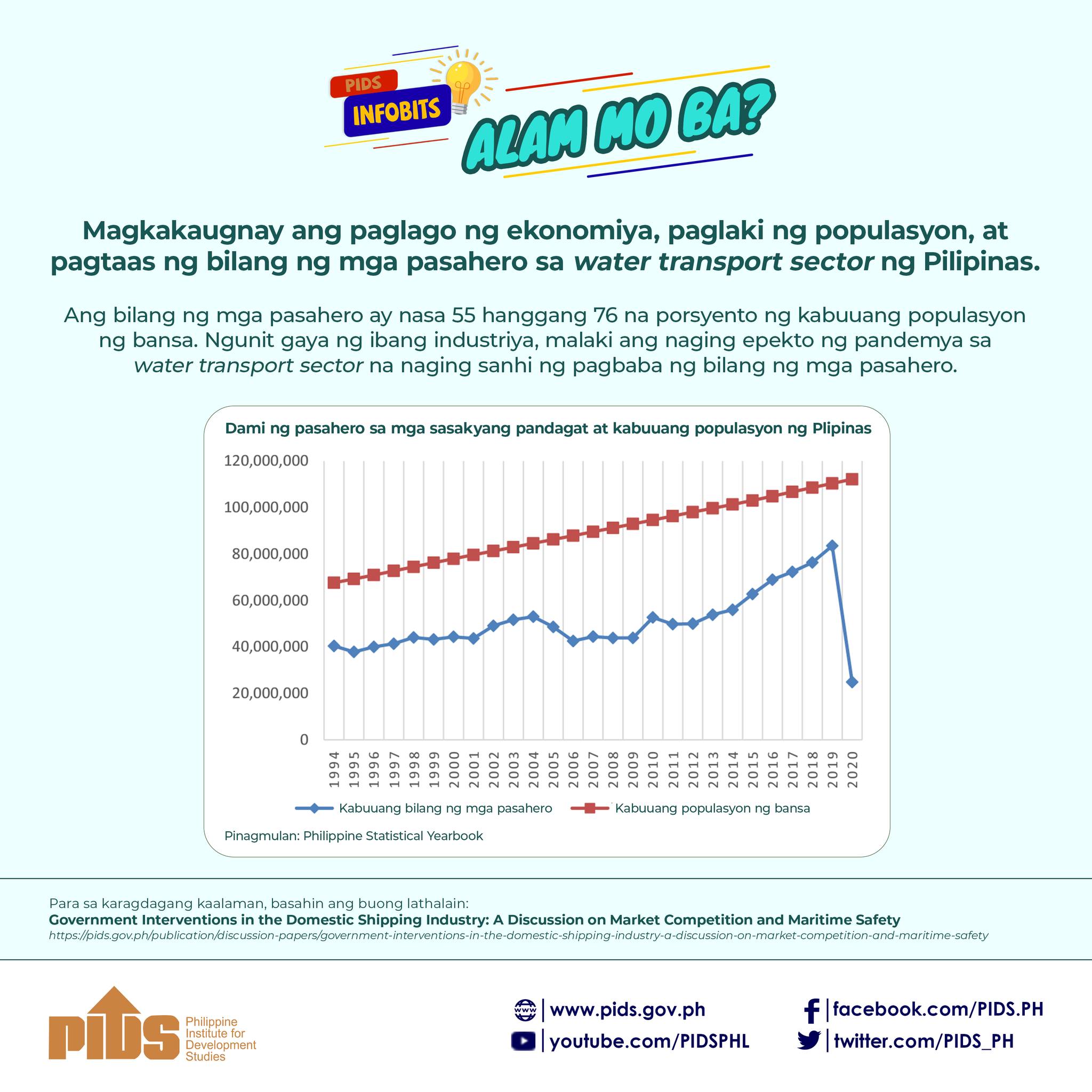MANILA, Philippines – State-run think tank Philippine Institute for Development Studies (PIDS) said grants for water supply and sanitation projects in the municipalities must be redesigned to expand coverage and ensure the sustainability of investments.
In a new policy note, PIDS said current regulations for the the water supply and sanitation sector are insufficient to drive investments in local government units (LGUs).
“The current state of economic regulations for the water supply and sanitation sector is not effective enough to compel LGUs and water districts to expand, improve the quality of their services, and upgrade their service standards,” said PIDS.
“This situation is most pronounced in LGU-run utilities given their conflicting proprietary and regulatory mandates. Without a regulatory stick, the realistic option for government to drive investments in the medium term is to offer financing incentives. Grant resources, therefore, will still be necessary to achieve the goal of universal coverage for water supply by 2025 and sanitation services by 2028,” it added.
Addressing the water supply and sanitation requirements of the country has been a key component in the development plans of previous administrations. The medium term development plans of the past two administrations laid down mechanisms for the attainments of the Millenium Development Goals (MDGs) for water supply and sanitation.
The Philippine Water Supply Sector Roadmap 2010 Update laid down the direction for attaining universal water coverage in the country by 2025. The Philippine Sustainable Sanitation Roadmap also provides for means to universal access to water sanitation by 2028.
Among the strategies employed for the attainment of these goals is the provision of grant financing to municipalities suffering from inadequate water supply and sanitation—specifically defined as locales where less than 50 percent of the household population have access to safe water supply. Two grant financing programs have so far been implemented: the President’s Priority Program for Water Supply (P3W) which ran from 2005 to 2010 under the Arroyo administration and the Sagana at Ligtas na Tubig para sa lahat which started in 2011 and will last until the end of 2016.
The grants are coursed through the Local Water Utilities Administration (LWUA) and the Municipal Development Funds Office (MDFO). LGUs also provide counterpart funding.
PIDS said an evaluation of the two programs generally showed positive outcomes such as the provision of safer sources of water, longer time availability of water, improved water pressure, decline in waterborne diseases in the municipalities, improvement of hygiene and emergence of income-generating activities that use water (such as piggeries and car wash business).
The P3W, which had a total budget of P5.42 billion, covered 499 water-short municipalities prioritized based on deficiency of access to safe water sources, poverty incidence and manifestation of waterborne diseases. Out of the total, only 39 municipalities graduated from being water short.
The Salintubig program, which had a budget of P5.81 billion covers 455 municipalities. Out of the total, only 62 municipalities have so far graduated from being waterless.
PIDS said, however, that these programs lacked focus on sanitation as it is not part of the program design of P3W and it is not a strong component of the Salintubig program. The programs also lacked proper assessment of water sources in the municipalities. PIDS noted because the capacity of a water supply system is limited by the capacity of the source, incorrect assessment can result in inadequate service and wasted investments.
Several investments made under the programs also proved to be unsustainable because of substandard design and construction and poor maintenance of facilities.
As such, PIDS recommends several improvements in the program design. These include creating an effective water source identification and development process, employing a stricter selection process for grant recipients, instituting an effective monitoring and evaluation system for the program, increasing the budget for technical assistance for LGUs and water districts and addressing sustainability-related issues.
PIDS also urges opening the water sector to public-private partnerships.
“Medium-term targets can be achieved through a combination of grants, loans, equity, or public-private partnerships. These grants will be for those areas where safe water access rates are lowest and, at the same time, have low capability to pay or where poverty is most severe,” said PIDS.
In a new policy note, PIDS said current regulations for the the water supply and sanitation sector are insufficient to drive investments in local government units (LGUs).
“The current state of economic regulations for the water supply and sanitation sector is not effective enough to compel LGUs and water districts to expand, improve the quality of their services, and upgrade their service standards,” said PIDS.
“This situation is most pronounced in LGU-run utilities given their conflicting proprietary and regulatory mandates. Without a regulatory stick, the realistic option for government to drive investments in the medium term is to offer financing incentives. Grant resources, therefore, will still be necessary to achieve the goal of universal coverage for water supply by 2025 and sanitation services by 2028,” it added.
Addressing the water supply and sanitation requirements of the country has been a key component in the development plans of previous administrations. The medium term development plans of the past two administrations laid down mechanisms for the attainments of the Millenium Development Goals (MDGs) for water supply and sanitation.
The Philippine Water Supply Sector Roadmap 2010 Update laid down the direction for attaining universal water coverage in the country by 2025. The Philippine Sustainable Sanitation Roadmap also provides for means to universal access to water sanitation by 2028.
Among the strategies employed for the attainment of these goals is the provision of grant financing to municipalities suffering from inadequate water supply and sanitation—specifically defined as locales where less than 50 percent of the household population have access to safe water supply. Two grant financing programs have so far been implemented: the President’s Priority Program for Water Supply (P3W) which ran from 2005 to 2010 under the Arroyo administration and the Sagana at Ligtas na Tubig para sa lahat which started in 2011 and will last until the end of 2016.
The grants are coursed through the Local Water Utilities Administration (LWUA) and the Municipal Development Funds Office (MDFO). LGUs also provide counterpart funding.
PIDS said an evaluation of the two programs generally showed positive outcomes such as the provision of safer sources of water, longer time availability of water, improved water pressure, decline in waterborne diseases in the municipalities, improvement of hygiene and emergence of income-generating activities that use water (such as piggeries and car wash business).
The P3W, which had a total budget of P5.42 billion, covered 499 water-short municipalities prioritized based on deficiency of access to safe water sources, poverty incidence and manifestation of waterborne diseases. Out of the total, only 39 municipalities graduated from being water short.
The Salintubig program, which had a budget of P5.81 billion covers 455 municipalities. Out of the total, only 62 municipalities have so far graduated from being waterless.
PIDS said, however, that these programs lacked focus on sanitation as it is not part of the program design of P3W and it is not a strong component of the Salintubig program. The programs also lacked proper assessment of water sources in the municipalities. PIDS noted because the capacity of a water supply system is limited by the capacity of the source, incorrect assessment can result in inadequate service and wasted investments.
Several investments made under the programs also proved to be unsustainable because of substandard design and construction and poor maintenance of facilities.
As such, PIDS recommends several improvements in the program design. These include creating an effective water source identification and development process, employing a stricter selection process for grant recipients, instituting an effective monitoring and evaluation system for the program, increasing the budget for technical assistance for LGUs and water districts and addressing sustainability-related issues.
PIDS also urges opening the water sector to public-private partnerships.
“Medium-term targets can be achieved through a combination of grants, loans, equity, or public-private partnerships. These grants will be for those areas where safe water access rates are lowest and, at the same time, have low capability to pay or where poverty is most severe,” said PIDS.












